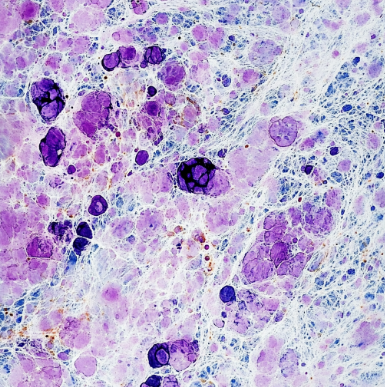In the fast-evolving world of healthcare, artificial intelligence (AI) is increasingly recognized for its potential to revolutionize patient care, especially for critical diseases such as cancer and cardiovascular diseases, two of the most prevalent and deadly conditions worldwide. These diseases are responsible for millions of deaths each year, and Saudi Arabia, like many other nations, is grappling with their growing incidence. However, with the advancements in AI and machine learning (ML) technologies, there is a unique opportunity to address these challenges with precision, speeding up diagnosis, improving treatment plans, and ultimately enhancing patient outcomes.
According to the World Health Organization (WHO), cancer and cardiovascular diseases combined caused 28 million deaths globally in 2020. In Saudi Arabia, these diseases are among the leading causes of mortality, putting immense strain on the healthcare system. To address these issues, Glance, a leader in healthcare AI, has partnered with Saudi Arabia’s National Technology Development Program (NTDP), forming a groundbreaking collaboration focused on developing AI-driven decision support systems (DSS) for oncology and cardiology, two of the most critical areas of healthcare in the country.
The Urgency for AI-Based Decision Support Systems in Saudi Arabia
Saudi Arabia’s healthcare landscape, like many others, is facing immense pressure from the growing incidence of heart disease and cancer. The country has seen significant healthcare reforms as part of Vision 2030, but there remains a pressing need for advanced technologies to support decision-making in clinical settings.
Doctors in Saudi, particularly those working in oncology and cardiology, often face overwhelming amounts of patient data. This includes medical records, genetic information, diagnostic tests, and treatment histories. Managing and interpreting this information to deliver timely and effective care is challenging. Delays in diagnosis or treatment initiation can have significant consequences for patient outcomes.
While AI-driven DSS tools have become more prominent in other regions, Saudi Arabia is still in the early stages of implementing such systems across the healthcare landscape. The collaboration between Glance and NTDP aims to change this by developing AI models specifically designed for the unique needs of Saudi healthcare professionals. These systems will enable faster data analysis, reduced medical errors, and improved diagnostic accuracy, paving the way for more personalized and effective treatments.
Are you a leading oncologist or cardiologist looking to join a cutting-edge AI-driven initiative? Glance is actively recruiting domain experts to shape the future of healthcare. Contact us at future@glance.care.
Glance’s Deep Market Research and Collaboration with Saudi Institutions
What sets Glance apart is its commitment to understanding the local healthcare ecosystem. Over the years, Glance has conducted extensive research, working closely with Saudi doctors to identify pain points in the decision-making process. The company has delved deep into understanding the specific needs of healthcare professionals, focusing on how AI can be leveraged to improve patient care in Saudi Arabia.
Studying Disease Behavior: Glance has invested in studying the progression of cancer and cardiovascular diseases in the Saudi population. The insights gained from this research have been instrumental in developing AI models that can predict disease outcomes and recommend optimal treatment strategies.
- Best Practices for Disease Management: By studying the best global practices for diagnosing and managing these diseases, Glance has integrated these methods into its AI solution. This allows doctors to make informed decisions based on a combination of local data and internationally recognized treatment protocols.
- Collaborations with Major Institutions: Glance’s collaboration with major research institutes in Saudi Arabia has further solidified its credibility. These collaborations have enabled the company to validate its AI models in real-world settings, ensuring that the technology meets the highest standards of accuracy and reliability.
The partnership has resulted in the development of sophisticated solutions for disease classification. By analyzing a patient’s genetic markers, tumor profiles, and biometric data, Glance’s solutions can predict disease progression, allowing physicians to tailor their treatment plans more precisely. This AI-driven precision is particularly valuable in the treatment of complex cancers and cardiovascular diseases.
Data-Backed Improvements in Cancer and Cardiovascular Outcomes
- Cancer: Studies suggest that AI-driven decision support systems can reduce diagnostic errors in cancer by 30%, leading to earlier detection and improved survival rates.
- Heart Disease: AI tools for cardiovascular care can reduce emergency response times by 20% and improve the accuracy of heart disease diagnosis by 25%, significantly impacting patient survival in acute cases.
How Glance’s AI Model is Revolutionizing Cancer and Cardiovascular Treatment
Glance’s AI model is not merely an additional tool in a doctor’s arsenal, it’s a comprehensive, transformative solution designed to give clinicians actionable insights for personalized care. By automating significant portions of the diagnostic process and providing evidence-based treatment recommendations, Glance’s AI helps to reduce the cognitive load on healthcare professionals. This allows physicians to devote more time and attention to patient care, improving both accuracy and efficiency in treatment decisions.
The collaboration with leading Saudi research institutions has been pivotal in validating these AI models. By rigorously testing them in real-world clinical environments, Glance ensures that its systems not only meet the highest standards of accuracy and reliability but are also fully compliant with local and international healthcare regulations, including NPHIES and FHIR standards. This alignment guarantees that Glance’s solutions are robust, relevant, and seamlessly integrated into the Saudi healthcare framework, facilitating enhanced patient outcomes.
Disorders covered:

- Non-small cell lung cancer
- Atrial Fibrillation with RVR
- Acute myocardial infarction
- Acute Decompensated HFrEF
- Stroke (CVA) or TIA
- Venous Thromboembolism (VTE): DVT and PE
- Papillary thyroid cancer
- Breast cancer (invasive ductal carcinoma)
- Endometrial uterine cancer
- Colorectal cancer
- Adenocarcinoma of Prostate
- Hepatocellular carcinoma
- Hodgkin lymphoma
DynSet: AI-Powered Order Set Optimization
For oncologists and cardiologists, choosing the correct treatment pathway is often a time-consuming process involving the analysis of numerous data points. DynSet reduces this complexity by using AI to recommend evidence-based, dynamic treatment orders. For instance, after diagnosing a patient with late-stage lung cancer or severe cardiovascular disease, DynSet helps doctors navigate through treatment options by suggesting personalized recommendations based on historical and real-time patient data.
- Impact: A 30-40% reduction in the time from diagnosis to treatment, helping doctors make faster, more informed decisions, which is particularly crucial in late-stage cancer or severe cardiac cases.
A New Era in Healthcare for Saudi Arabia
Glance’s collaboration with NTDP represents a monumental leap forward for healthcare in Saudi Arabia. By harnessing the power of AI to tackle data overload, decision-making complexity, and administrative burdens, Glance’s solutions are transforming the way cancer and heart disease are treated. This partnership not only addresses the most critical healthcare challenges but also positions Saudi Arabia as a global leader in AI-driven healthcare innovation.
Glance is also actively seeking R&D partnerships, particularly with hospitals and health tech companies, to co-develop pioneering AI solutions. To explore collaboration opportunities, reach out to us at future@glance.care
As Saudi continues to pursue its Vision 2030 goals, Glance’s innovative technologies will be at the forefront of this transformation, offering solutions that are both scientifically rigorous and deeply integrated into the local healthcare fabric.

